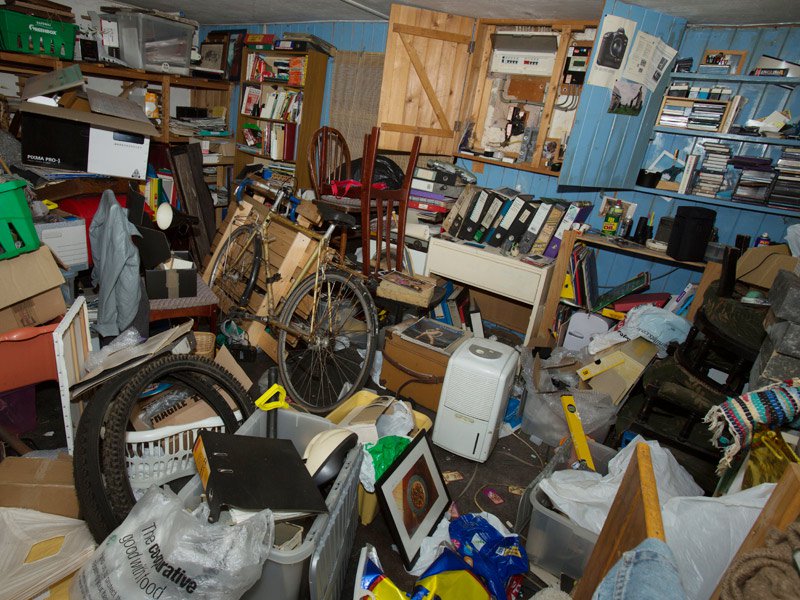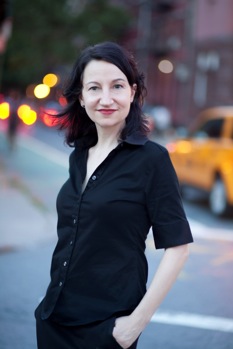My mother was a hoarder. It didn’t start out this way, but it became more pronounced and more disturbing once she hit middle age and she started locking her bedroom.
We all knew that hillocks of clothes and bulky boxes of once-used items were being piled needlessly high on any spare inch of floor space behind that sealed entrance: an increasing sign that my mother did not have her life together and, in hindsight, a telltale indicator that she could not care for us.
She collected things much as she collected people: there was the initial delight followed by an ephemeral interest, followed by swift abandonment and a failure to finish what she had started. I was so unnerved by my mother’s packrat tendencies that I developed an anti-materialist lifestyle in which I assiduously avoided the accumulation of baubles. But I still held onto my notebooks and any creative scraps I generated. And I still wonder to this day if this is an entirely healthy tendency. I didn’t develop the confidence to buy a third pair of shoes without guilt until I was in my early forties and I only recently purchased a waffle maker, even though I have long possessed the desire to cook jolly breakfasts for friends. The greatly underrated writer Jessie Sholl has written about the way our parents pass along these deeply humiliating conundrums in her book, Dirty Secret. The shame of understanding or even remotely mimicking who our parents are causes us to take several serious missteps in our own lives. Our parents’s personality traits scar us in ways that we don’t often realize until we’re well into adulthood ourselves.
Perhaps my mother’s desire to cleave to doodads represented her need to take up space entirely on her own terms and no one else’s. This is very often what motivates a narcissist: a lack of mindfulness intertwined with a solipsistic impulse that is fragile and frangible enough to transform into self-destruction. But whatever the underlying psychological motives, my mother’s hoarding transformed from a manageable obsession into a monomania so suddenly and so unnervingly that I have only just realized, as I am in middle age and I am trying not to repeat the mistakes of my parents (with mixed results), that this was indeed hoarding and that much of my life was shaped by it. (Thankfully, I have mostly confined my “hoarding” to the more than three thousand books I live with, regularly purged and repatriated to ensure spare shelf space.)
In the early stages, in the comparatively innocent days, my mother bought clothes and her closets filled up. The dresses crunched up together so that fur and taffeta were flattened, resembling unassembled cardboard boxes in look and in texture and often never worn. The more space we had, the more it became devoted to my mother’s hoarding. Our garage was especially frightening. You had to climb over and leap across all manner of bric-a-brac just to get the mail. There were rats nesting in the crevices, rats that later set up camp throughout the house and scratched into the walls and scurried around the attic and nothing would be done about this and I would often stay up late and watch movies to drown out the noise of rats scraping loudly, relentlessly into the night. It is why I may be more terrified of rats than most people, although I have summoned the bravery, when called for, to dispose of rats like any bona-fide Brooklynite.
The weird thing is that, while my mother was inveterate in the way that she held onto things, she was completely incompetent in knowing when to go regular grocery shopping and replenish the cupboards. I have long wondered how someone who was supposed to be responsible for us could be so stunningly irresponsible. But examining the motives of a narcissist usually results in the same thrumming singular chord. What I did do was cultivate a fierce loyalty for my friends and anyone or anything I have ever loved. And I know that my exuberance can be scary, scary because it is both incredibly sincere and incredibly intense.
I have been afraid to own things. And that includes being afraid to own who I am. Because to do so would be to hoard, to succumb to the same myopic impulses that fueled my mother and to shamble through detritus, even though wading through the muck of one’s failings is the only way we grow stronger. My answer to this has been to embrace a state of existential obliviousness and hope for the best. It is not exactly hoarding, certainly not in the material sense, but it does represent a quality that is just as insalubrious.

